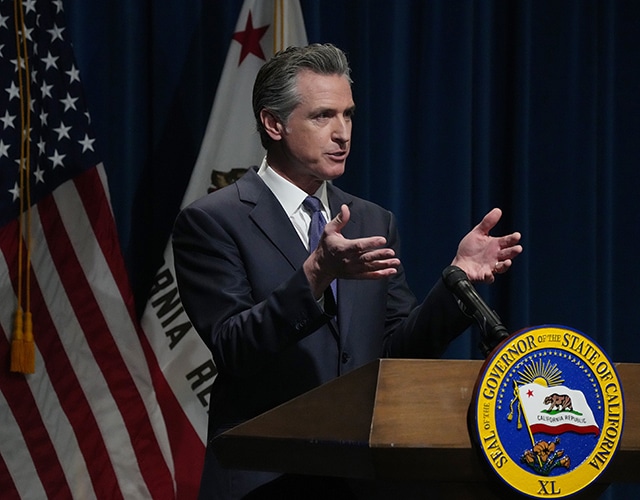Gov. Gavin Newsom signed legislation last fall that would make it illegal for businesses in California to tack on fees beyond their listed prices, such as a “resort fee” at a hotel or a service charge that inflates the cost of a concert ticket.
Supporters applauded, saying hidden fees were deceptive and hurt consumers. “California now has the most effective piece of legislation in the nation to tackle this problem,” state Attorney General Rob Bonta said. “The price Californians see will be the price they pay.”
The law takes effect July 1. But now there’s a chance that it won’t apply to all businesses.
Restaurant owners have argued that they should be exempt because they are struggling to survive in a challenging market. Many restaurants charge such fees these days. A menu may list a price of, say, $25 for a plate of penne puttanesca, but then the house adds a 5% fee to fund the employees’ health insurance plan. Another may charge $25 for pad thai and then a mandatory 20% service fee on top of that.
The new law would forbid that practice. Instead, those restaurants would have to include any such costs in their listed prices — so in those examples, $26.25 for the penne puttanesca and $30 for the pad thai. (The only extra costs that could be added to the listed price, according to the law, would be taxes and shipping fees.)
Some restaurant owners said raising menu prices that way without providing the context could hurt their business. And if they dropped the charges without raising listed prices, in an effort to stay competitive, that would mean reducing their already slim profit margins or even laying off staff members, owners said.
“The system itself, as we know, is clearly broken,” Vanda Asapahu, who owns Ayara Thai in Los Angeles, told The New York Times last month. “I wish I did not have to depend on service charges to give my team a living wage.”
In response to the restaurant owners’ complaints, Sen. Bill Dodd, D-Napa, a co-author of the new law, returned to the Legislature recently with a new bill that would exempt restaurants, bars and other food service providers from the requirements.
Under the new bill, known as SB 1524, restaurants would be allowed to charge a mandatory gratuity or any other surcharge or fee as long as it is displayed “clearly and conspicuously” on the menu. The bill’s supporters are hoping to get it through the Legislature by the end of the month.
“Restaurants are vital to the fabric of life in California, and they should be able to cover costs as long as they do so transparently,” said Sen. Scott Wiener, D-San Francisco, a co-author of the new bill. “SB 1524 clarifies portions of the law that pose a serious threat to restaurants. The bill strikes the right balance between supporting restaurants and delivering transparency for consumers, and I’m proud to support it.”
c.2024 The New York Times Company. This article originally appeared in The New York Times.







